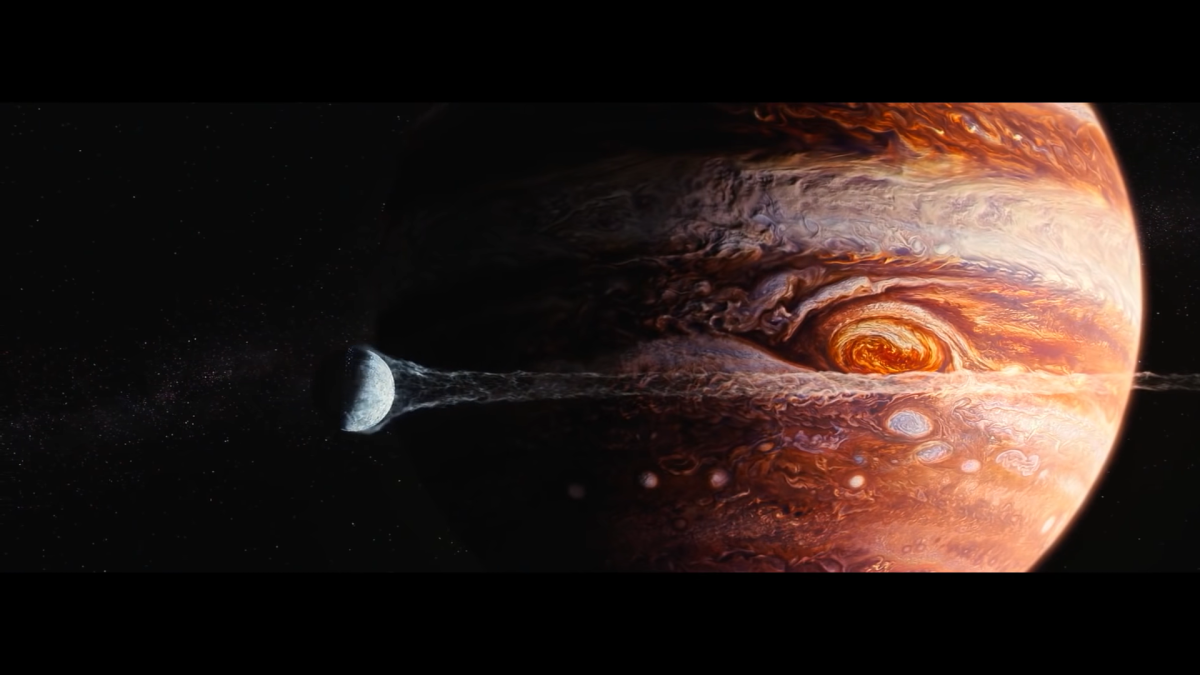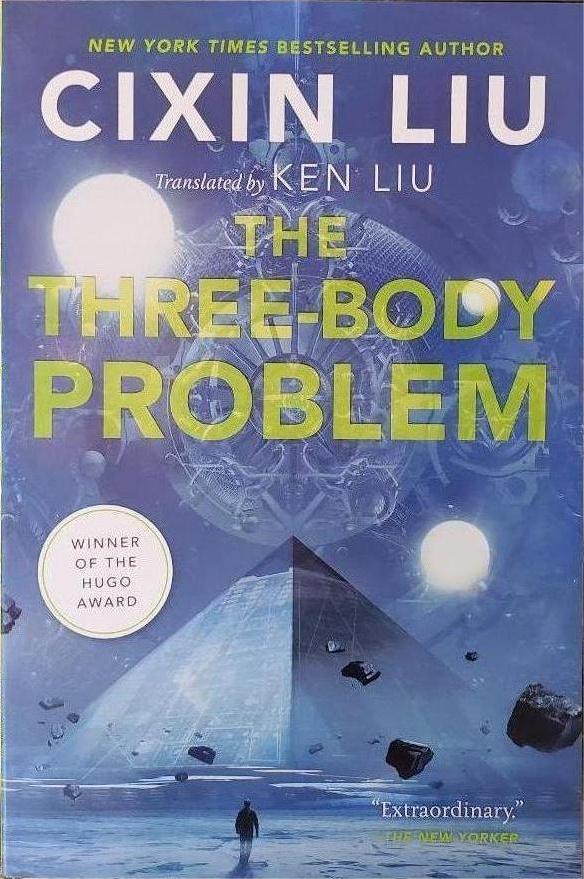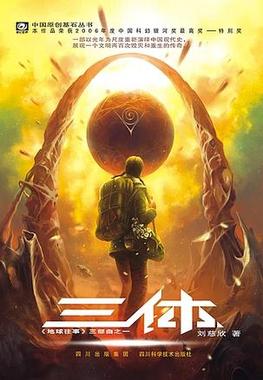“The Future is Reset. Ready?”: Why Reading Chinese Science Fiction Matters
Chinese science fiction came to broader attention when The Three-Body Problem (三体) became the first Asian book to win the prestigious Hugo Award for science fiction writing in 2015. Liu Cixin’s expansive trilogy, detailing Earth’s response to alien contact, captured readers’ imagination, with film adaptions rumoured to be in production. However, science fiction in China encompasses much more, a tradition extending to the late-Qing dynasty, when Liang Qichao translated Jules Verne and penned a story about the future of China. Today, there is a diverse science fiction culture, including writers such as Chen Qiufan, who focuses on the human-AI interface, through to fantastical visions of mechanical haunting or urban re-engineering in narratives by Xia Jia and Hao Jingfang. Short story anthologies make these accessible in English, while the Chinese film industry has released movies such as The Wandering Earth.
Understanding the interest in Chinese science fiction is not straightforward. Liu explains the phenomenon by comparing China today with twentieth-century America, pointing to accelerated modernisation and wonderment about tomorrow’s crises and opportunities.1 Chen also focuses on the genre’s propensity to trigger speculation and dialogue about China’s futures.2 Perhaps most relevant for Western readers, Xia suggests Chinese science fiction provides alternative forms of modernity addressing “the collective fate of all humanity”3: for her, literature is a form of becoming that crosses national and other frontiers.

- Scene from movie The Wandering Earth
From video chats and voice activation to self-driving vehicles, much of today’s science was predicted by yesterday’s science fiction. Beyond gadgetry though, the genre’s capacity for futurology in Western culture also includes premonitions of technology’s impact on society, such as Isaac Asimov’s I, Robot or George Orwell’s dystopian 1984. This is what makes science fiction as much about ideas and society as about science and technology. Writing in 2020, the scholar David Der-wei Wang asked Why Fiction Matters in Contemporary China.4 His answer foregrounds the imagination, asserting: “Chinese fiction writers are willing to venture beyond the sanctioned domains of the real in search of the virtual” (28). Dedicating one section to Chinese science fiction, he demonstrates how novelists such as Liu project imagination beyond planetary constraints, even beyond human perspectives. This sheds new light, Wang explains, on contemporary China, such as “the shared future of mankind”, a national mantra reflected in the official slogan of the 2022 Winter Olympic Games held in Beijing (一起向未来).
But why does reading Chinese science fiction matter? Building on Wang’s emphasis of shared futures, this article contemplates what it means to read Chinese science fiction, as a phenomenon with roots in Chinese culture, but that is also read in other contexts. Unlike Wang, my own approach to these narratives is one of an academic and a non-native speaker, discovering them through translation. What does it mean to teach the anthology to students in Amsterdam? Or write about it in my academic work? My questions lead me to assert that reading across cultures, particularly speculative literature, brings awareness of the places of the human at the edge of the Anthropocene. It is an exercise evoking planetary perspectives, much needed in an era when borders and minds have been closing all too frequently.
Fiction that asks ‘What if’’
As a professor of cultural studies, I consider reading as the opening up of perspectives, what Zadie Smith calls, “the invitation to enter a parallel space, a hypothetical arena, in which you have imagined access to whatever is not you”.5 I was excited to begin reading The Three-Body Problem, the first volume of Liu’s trilogy.6 As I read on, I wanted to know more about the novel’s leaps of imagination, what had hooked me into the world (or in this case the multiverse) the author was spinning around me. Often the best way to dig deeper into such questions is to teach about them, as this is a good way to pinpoint what stands out as innovative in writing, so I sought an opportunity to embed some examples in the syllabus. In class, we read Ken Liu’s Invisible Planets anthology.7 What was surprising was that each student was drawn to different stories: some preferring more heart-warming fables, others drawn to the collection’s gothic fantasies, yet others to stories projecting technological dystopias. We found ourselves returning time and again to a definition given by Chen:
In my view, “what if” is at the heart of science fiction. Starting with reality itself, the writer applies plausible and logically consistent conditions to play out a thought experiment, pushing the characters and plot toward an imagined hyperreality that evokes a sense of wonder and estrangement. Faced with the absurd reality of contemporary China, the writer cannot fully explore or express the possibilities of extreme beauty and extreme ugliness without resorting to science fiction. (372-3)
Chen expresses the hope that science fiction can bring consensus, mend rifts, signal possible co-existence. We discovered an important lesson: context matters. It mattered that the stories derived from Chinese socio-cultural conundrums, but equally that we, as readers, with few exceptions, had been acculturated in other values. Also that the work of translating, editing, anthologising required our good will and attention to carry forward the cues laid down. In the second iteration of the class, I added an assignment where students drew on these realisations, by writing short fictions, framing these as thought experiments, and inserting an element of Chinese culture within the storyline. The results were liberating, as students became aware of their position as readers across frontiers, then as authors engaging in speculation that blended cultural assumptions and possibilities.

-Front page of The Three Body Problem © Chongqing Press
Researching Replacing
In my research, I replicate this experiment. An analysis of the anthology prompted to me to consider literature as a process of replacing. With this concept, I refer to science fiction’s ability to expose us to technologies that may replace human activities, but also to how locations are reimagined, and how readers are re-grounded through being transported to other worlds. What emerges is a thought experiment effectively re-placing us in the complex contexts we inhabit by taking us elsewhere. In one section, I liken reading to a figure in one of the stories. The allegory is with the unsteady gait of a rusting mechanical automaton, left over from a previous glorious Olympics (Beijing 2008), in Xia’s story, ‘Night Journey of the Dragon Horse’. The story follows the machine as it hesitantly steps forward, sometimes in companionship, often alone, always with memories and illusions. Xia’s story is an elegy that ends with an affirmation. The dragon horse, obsolete yet stumbling forward regardless, no longer has a context. As readers, however, the narrative invites us to develop empathy with its plight through sharing in its poetry and dreams—in sum, through the literary connection we make with another’s hopes and fears.
Writing about Chinese science fiction in our current planetary context gives me access to future prospects: if humanity is at the edge of a precipice, what sense is there to us as a fated species, and what is the point of the connections we make and cultures we co-create? Working across cultures reminds us that the sands are always shifting, and only curiosity and care save us from sinking. This is perhaps what Chen is thinking of when he advances the following reflection, in response to Yuval Noah Harari’s claim that science fiction is today’s “most important artistic genre”:8
Science fiction has the capacity to serve as a warning, but speculative story-telling also has a unique ability to transcend time-space limitations, connect technology and humanities, blur the boundary between fiction and reality, and spark empathy and deep thinking within its reader. (xx)
Resetting the present
There are many ways to answer the question why reading Chinese science fiction matters. Reading these stories mapped one trajectory for me, but I am also fascinated by analyses from Sinologists, such as Jeroen de Kloet in his thoughtful meditation on the movie, The Wandering Earth. De Kloet appreciates “its attempt to engage with environmental issues, […] its naïve but still relevant articulation of a banal cosmopolitanism, […] its playing with national, including Chinese, stereotypes and […] its brief outbursts of criticism, for example, of the air pollution in Beijing or the obsession with money that has overtaken contemporary Chinese society.”9 Another researcher, Salvador Marinaro, concludes his review of China’s futurism10 arguing speculation provides platforms to “speak of the conflicts of the present without mentioning time and place”. My own approach has been to anchor the multiple, possible futures summoned by the genre within cultural contexts—those that inform stories and those they encounter as they cross borders—since the deepest mysteries are not out there or beyond, but here and now. The more our shared readings reveal about possible futures, the more hope there may remain to avert catastrophe in the present.
Another novel by Liu Cixin, Of Ants and Dinosaurs, 11 warns of the dangers species and ecosystems face when they look away, stop cooperating, replace a sense of balance with a quest for mastery. Our decade presents challenges of a magnitude hitherto unimaginable. Humankind continues to bury collective heads in the desert waste we create: a virus we do not yet understand but that nations claim they know how to manage; the climate crisis exceeding critical watersheds but co-opted as ‘opportunities’ by those economic models that brought it about; and now the self-interested responses (or worse) to Putin’s barbaric devastation and slaughter in Ukraine. Avoidance can be a survival strategy, but only in the shortest of terms. As individuals, it is perhaps understandable we prioritise care for ourselves and those around us even this means tuning out. However, for the institutions, corporations, states and powerbrokers in which our societies invest hopes, avoidance and denial can become unpardonable, ultimately genocidal. Insofar as we have a voice, then we too must speak out. Fiction and speculation are endeavours that reaffirm the values we, and others, hold dear, and provide the imaginative vocabularies we need if we are to influence changes of course.
In his recent book, Chen tells of an escapee from a world designed to harness technological progress to guarantee happiness. However, with no challenges, nothing confronting our fears, the protagonist is reminded, any real fulfilment is replaced by futile pleasure-seeking. Fleeing through the desert, he encounters a “giant billboard” reading “THE FUTURE IS RESET. READY?” (384) Science fiction has the capacity, like the billboard, to remind us of our duty to be aware of context, and think about how we might reset our present, and our presence. Reading Chinese science fiction matters because it gives us a chance to reorient values, set us, however hesitantly, on alternative paths to the future. The question is: are we ready?
References
1 Liu Cixin, ‘The Worst of All Possible Universes and the Best of Possible Earths: Three-Body and Chinese Science Fiction’, in Liu, Ken (2016), p.366.
2 Chen Qiufan, ‘The Torn Generation: Chinese Science Fiction in a Culture in Transition’, in Liu, Ken (2016), pp. 374-5.
3 Xia Jia, ‘What Makes Chinese Science Fiction Chinese?’, in Liu, Ken (2016), p,382.
4 Wang, David Der-Wei, Why fiction Matters in Contemporary China (Brandeis University Press, 2020)
5 Smith, Zadie, ‘Fascinated to Presume: In Defense of Fiction’, The New York Review of Books, 24 October 2019. Available online at nybooks.com/articles/2019/10/24/zadie-smith-in-defense-of-fiction. Last accessed 29 September 2021. No page numbers.
6 Liu Cixin, The Three-Body Problem (Head of Zeus, 2015). Tr. Ken Liu. First published Chongqing Publishing Group, 2008.
7 Liu, Ken, Ed. and Tr., Invisible Planets .13 Visions of the Future from China (Head of Zeus, 2016).
8 Chen Qiufan, ‘How we can learn to stop worrying and embrace the future with imagination’, in Kai-Fu Lee and Chen Qiufan, AI2041 (Penguin Random House, 2021). xix-xxiii.
9 Kloet, Jeroen de, ‘Rising, Becoming, Overcoding: On Chinese Nationalism in The Wandering Earth’, in Ahmad, Irfan and Jie Kang, eds., The Nation Form in the Global Age: Ethnographic Perspectives (Palgrave Macmillan, 2022), pp.155-74, pp. 169-70.
10 Marinaro, Salvador, ‘Sinofuturisms: How does China Dream of the Future?’, Le monde diplomatique, March 2022, Review 27. Available (in Spanish) online at eldiplo.org/notas-web/sinofuturismos-marinaro/?fbclid=IwAR2AYjGesnOaz627YlUrErkwS3aW6qei_QW-QmKeGXddP8RLRkxRkiC48hE.
11 Liu, Cixin, Of Ants and Dinosaurs (Head of Zeus, 2020). Tr. Elizabeth Hanlon.

 Share on Facebook
Share on Facebook Share on Twitter
Share on Twitter Share on LinkedIn
Share on LinkedIn